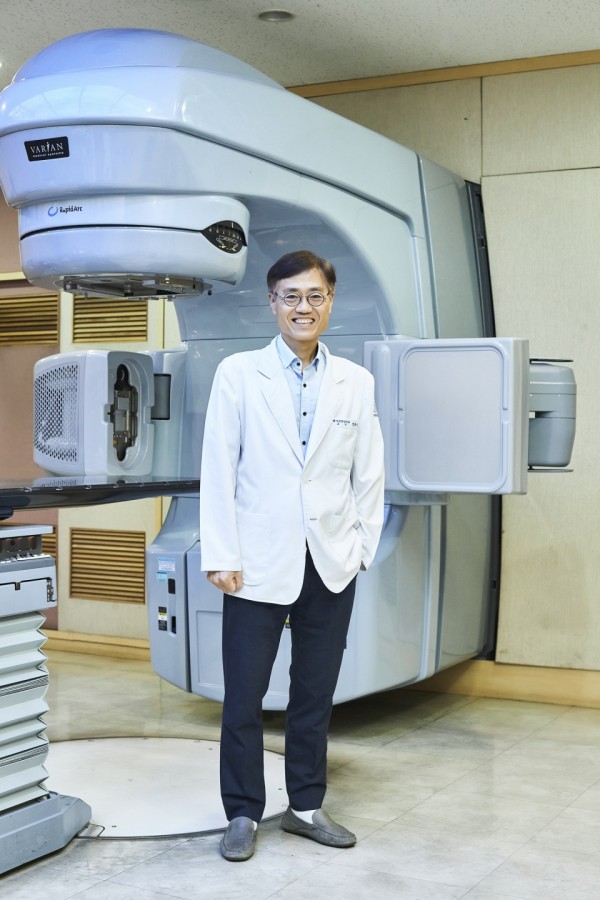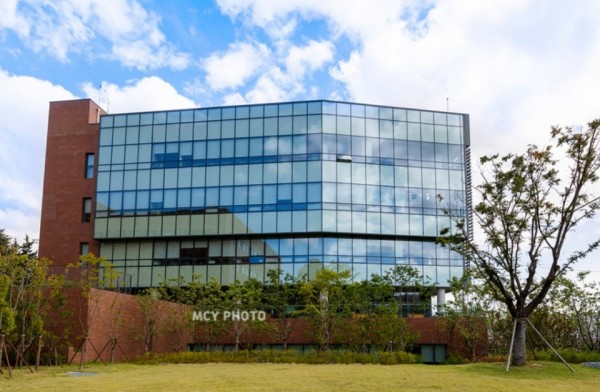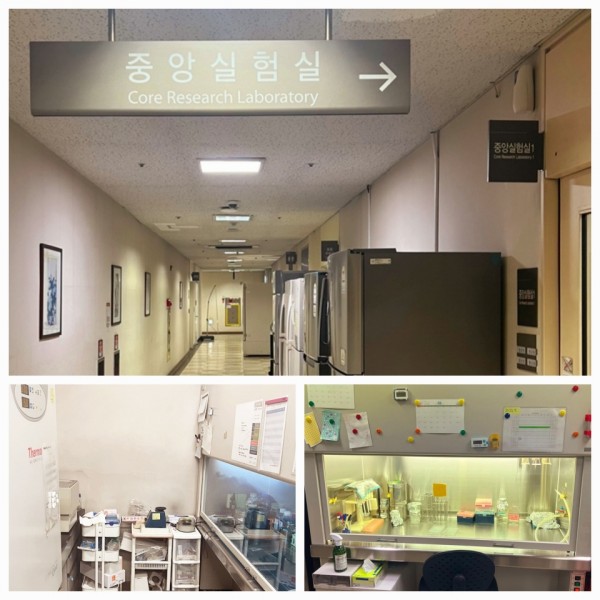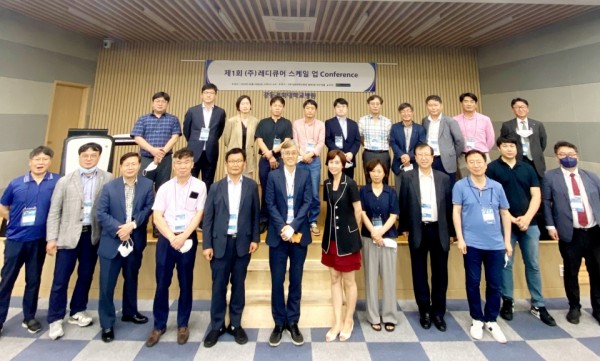[Interview] Weon Kuu Chung, CEO of READYCURE: “Dementia Treatment is P…
페이지 정보

본문
A Bio Startup Challenging Alzheimer's Treatment with Low-Dose Radiation
Founded by Chief Professor Weon Kuu Chung from the Department of Radiation Oncology
at Kyung Hee University Hospital in Gangdong,focused on a fundamental approach to
dementia treatment by transforming microglia, a type of immune cell in the brain.
Developing a radiation therapy device that utilizes carbon nanotubes for safe and effective radiation treatment.
Countries around the world are fiercely competing in research and development to conquer dementia.
Since Biogen’s Alzheimer’s drug "Aduhelm" (aducanumab) became the first approved treatment
for Alzheimer’s last year, other companies have been racing to catch up.
From oral medications like Aduhelm to patch-based treatments like donepezil patch “Adlarity,”
research on dementia treatments has made progress. However, these therapies still primarily
focus on symptom relief and slight slowing of disease progression, rather than offering a fundamental cure.
Particularly, Aduhelm’s issues with side effects, limited efficacy, and high costs have underscored the need
for more effective dementia treatments.
In this context, an innovative company has taken on the challenge of treating dementia with an
entirely new approach. READYCURE, a bio startup founded by Chief Professor Weon Kuu Chung
of the Department of Radiation Oncology at Kyung Hee University Hospital in Gangdong,
is pioneering the use of low-dose radiation for Alzheimer’s treatment.
Since its establishment in October of last year, READYCURE has been selected for six public projects
and has secured 700 million KRW in angel funding within just eight months.
In a world where research on Alzheimer’s treatment using low-dose radiation is rare,
READYCURE has drawn attention by developing its own equipment to overcome the limitations of drug therapies.
While traditional dementia treatments have focused on removing amyloid-beta and tau proteins,
known to cause dementia, CEO Weon Kuu Chung has taken a more fundamental approach,
focusing on transforming microglia, a type of immune cell in the brain. This transformation,
according to Dr. Chung, is possible through low-dose radiation therapy.
We delve further into Dr. Chung's journey as a physician and professor who ventured into
dementia treatment development, the principles behind treating dementia with low-dose radiation,
and the unique technology of READYCURE.
◇ What is READYCURE?
I am Weon Kuu Chung, the chief professor of Radiation Oncology at Kyung Hee University Hospital
in Gangdong and the CEO of the biotech startup READYCURE. Founded on October 27 of last year,
READYCURE is headquartered in the Seoul Bio Hub in Hongneung. Our mission is to lead a new paradigm
in dementia treatment. We aim to advance the medical industry through low-dose radiation therapy and
contribute to public health improvement in Korea, alongside the well-being of our employees.
Currently, our team consists of four people: myself, a lead researcher, and two administrative staff members,
all working together with dedication. Since last year, we have successfully completed around
six internal and external projects, receiving about 290 million KRW in funding.
Additionally, we raised approximately 700 million KRW in angel investment to grow the company.
◇ What inspired you to specialize in Radiation Oncology?
As a medical student, I enjoyed visiting the lab of a professor I admired, which was always filled
with unsorted research papers and had a distinctive smell. That atmosphere inspired me to pursue academia.
After graduating from medical school, I couldn’t initially choose my desired specialty, so I took a year off,
working night shifts at a small private clinic in Cheongyang, Chungnam. Most patients were elderly,
with chronic conditions like arthritis, diabetes, and hypertension. Watching the head doctor prescribe
the same treatments repeatedly felt monotonous, and I realized that I disliked simple, repetitive tasks.
This led me to choose Radiation Oncology, a specialty that allowed me to work in a university hospital setting,
treat patients, and engage in research.
◇ Why did you, an expert in radiation therapy for cancer, develop an interest in dementia treatment?
In the fall of 2016, a professor who studied dementia introduced me to a paper.
The study, published by William Beaumont Hospital in the U.S., showed that radiation therapy reduced
amyloid-beta plaques in the brains of dementia model mice. I found this fascinating and wanted to
conduct similar research. I applied for a research grant from the National Research Foundation of Korea,
secured funding, and began my studies. Recently, we published findings on the anti-inflammatory and
neuroprotective effects of low-dose radiation therapy in international journals.
◇ What is low-dose radiation, and how does it work in treating dementia?
The concept of "low-dose" contrasts with "high-dose" radiation, which typically refers to
levels high enough to damage cells and is used primarily in cancer treatment. In contrast,
"low-dose" radiation is non-harmful to the body. It is believed to activate the body’s natural defense mechanisms
and maintain homeostasis, resulting in therapeutic effects for dementia.
Low-dose radiation promotes anti-inflammatory and antioxidant effects, similar to how a vaccine boosts immunity.
◇ How far has research on radiation therapy for dementia progressed globally and domestically?
Small clinical trials conducted abroad have shown positive effects in dementia treatment.
In Korea, a recent small-scale study at Chungbuk National University showed promising interim results.
A larger clinical study I am involved in is also in the early stages. Research on animals and cells has
demonstrated the anti-inflammatory and antioxidant effects of low-dose radiation.
Our research team has observed increased anti-inflammatory responses in Alzheimer’s disease model
animals and cells, which improved cognitive function, as reported in international journals.
READYCURE is committed to developing the "AMG-300," a dementia treatment device using radiation therapy,
and aims for clinical application by 2025.
◇ Radiation is often associated with risks. How safe is low-dose radiation?
We use radiation levels lower than the known safety threshold. Nonetheless, we are developing
a radiation therapy device using carbon nanotubes to ensure greater safety and effectiveness,
allowing us to use even lower doses. We continue researching various radiation delivery methods to
maximize efficacy while minimizing exposure.
READYCURE Central Laboratory
◇ What do you think gives READYCURE a competitive edge in the global market?
So far, clinical studies conducted abroad have primarily used conventional radiation equipment in small-scale trials.
READYCURE’s equipment stands out because it is specifically designed for dementia treatment using low-dose radiation.
Traditional radiation equipment was developed to destroy cancer cells, emitting high-energy radiation.
Moreover, they typically have only one radiation source, limiting treatment flexibility. In contrast,
READYCURE’s equipment uses ten radiation sources, allowing for adjustable low-to-medium energy
radiation and the capability to operate multiple sources simultaneously.
This enables a variety of treatment options, maximizing effectiveness while minimizing radiation exposure.
◇ You developed low-dose radiation equipment specifically for dementia treatment.
Could you describe the device and its unique benefits?
When used continuously, cancer treatment drugs often lead to resistance,
requiring higher doses to achieve the same effect. In contrast, low-dose radiation therapy builds the
body’s resistance similarly to how a small amount of toxin increases tolerance.
This approach avoids issues related to drug resistance. Additionally, low-dose radiation therapy is
both cost-effective and safe. Unlike traditional high-energy radiation equipment used for cancer,
which increases shielding and operational costs along with health risks for both patients and operators,
READYCURE’s device uses low-to-medium energy radiation.
This makes shielding easier and significantly reduces both operational costs and health risks.
◇ What is the range of conditions that can be treated with low-dose radiation?
Low-dose radiation enhances anti-inflammatory effects, so its potential applications extend
beyond dementia to conditions like keloids and degenerative arthritis.
◇ You must have faced challenges before founding the company. What was the primary motivation for starting it?
In early spring last year, I realized there was no dedicated radiation equipment for dementia treatment,
despite the various types of equipment available for different therapeutic purposes.
Then, in September 2021, I was appointed lead researcher for a project commissioned by
Korea Hydro & Nuclear Power Co., Ltd., which aimed to verify the safety and efficacy of low-dose radiation
in dementia patients. Even in the early stages of this clinical research, we observed promising improvements
in cognitive function. This highlighted the need for a dedicated low-dose radiation device for
both dementia and chronic inflammation treatment, and I felt compelled to establish a company to
develop and operate such equipment.
What gives READYCURE its competitive edge, having attracted 700 million KRW in investment within six months of its founding?
Dementia is one of the most challenging diseases, faced by countries with aging populations like
Korea and other major nations worldwide. There remains no fundamental solution for dementia,
which has led researchers to consider new approaches to treatment. Rather than solely focusing on removing
amyloid-beta and tau proteins, known contributors to dementia, researchers are exploring more fundamental
solutions. One promising approach is transforming microglia, a type of immune cell in the brain,
to enhance their function in dealing with these abnormal proteins. Low-dose radiation therapy enables
this transformation, and initial clinical trials have shown cognitive improvements, raising expectations for our equipment.
◇ As a physician who founded and manages a company, what challenges have you faced, and how are you overcoming them?
Switching from a relatively stable career to start something new has brought many challenges.
I believe these challenges are common to anyone venturing into an unfamiliar field later in life. Fortunately,
with the support of many expert colleagues, I’ve been able to manage without major difficulties.
I proceed with humility, listening to advice from others, but ultimately, I make decisions with the mindset that the responsibility is mine.
관련링크
- 이전글2024 READYCURE Autumn Workshop 24.11.18
- 다음글Digital X-ray Dementia Treatment Device Developer, "READYCURE Co., Ltd.," Selected for Ministry of SMEs and Startups’ Deep Tech TIPS and Didimdol R&D Projects, Agreement Finalized 24.11.14
댓글목록
등록된 댓글이 없습니다.





